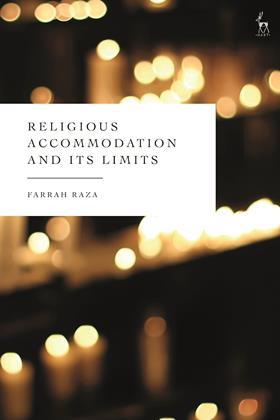Religious Accommodation and its Limits
Farrah Raza
£85, Bloomsbury
★★★★✩
The legal accommodation of religious beliefs is one of the most controversial debates in modern liberal societies. Should anyone be exempt from any of the laws of the land just because they happen to believe – or claim to believe – in something others do not? What is a religion to begin with? Who decides that question? And who decides the validity of someone’s claim to be an adherent?
Most lawyers will recall high-profile cases raising some of those questions over recent years, even if they do not have a professional interest in the subject. Cases have encompassed matters as diverse as the validity of a school uniform, the right to refuse medical treatment, admission to religious schools, exemptions from burial laws, exemption from tax and property levies, freedom of speech, and a myriad others.
The level of complexity and variety means that a workable, overarching theory is a challenge to lawyers and philosophers alike. Farrah Raza, a legal academic, has made a spirited attempt at developing a general approach that can be applied practically. Her book is based on her PhD thesis. It is not confined to British law but looks at other jurisdictions, including the European Union, Canada and the US.

Raza squarely confronts the preliminary question of whether any religious right could be justified, rather than society flatly excluding considerations of religion from all potential legal issues. She answers in the affirmative, naming four bases for the law to reflect different religious claims: the protection of identity, the need for substantive equality, the dignity of the individual and the right to personal autonomy.
Equally, and correctly, she concedes that religion should not trump other interests. In respect of how religious rights might be restricted, Raza cites JS Mill’s classic ‘harm principle’ – that the actions of individuals should be limited only to prevent harm to others.
As ever, the problem lies in the detail – what exactly is meant by harm? Raza identifies four categories relevant to law: harm to health and safety; harm flowing from denying access to rights, goods and services; violations of dignity; and excessive practical costs.
Inevitably her arguments will not be accepted by all, and she freely concedes the right to freedom of religious belief will continue to raise difficult questions for liberal states. But she should be commended for a cogent, well-argued case which dismisses neither religion nor secularism.
James Wilson FRHistS is an independent legal author. His most recent book is Lord Denning: Life, Law and Legacy (Wildy, Simmonds & Hill, 2023)































No comments yet